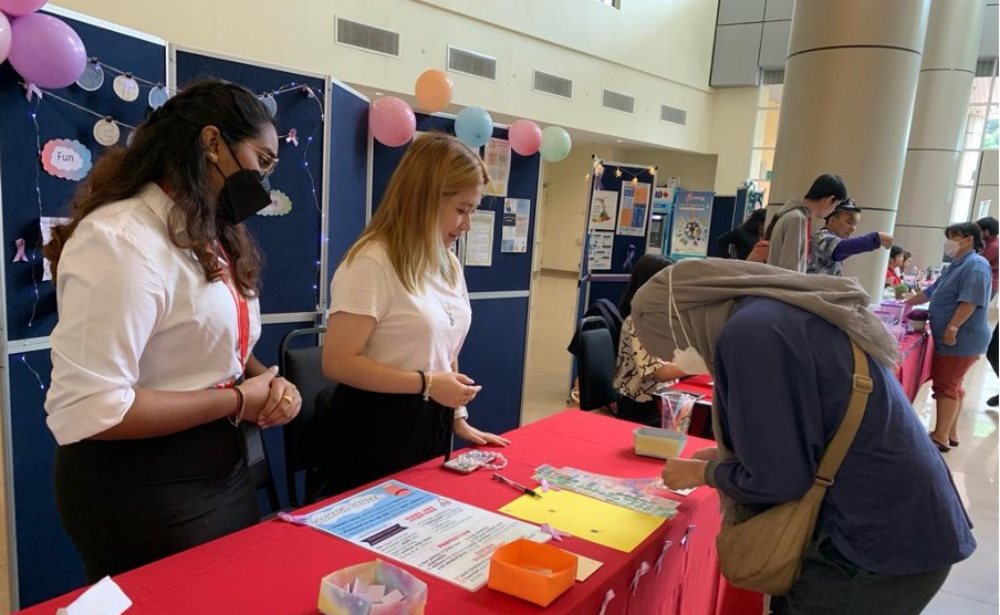世纪大学心理学大专文凭课程的学生们在Valarmatdi女士的带领下,前往位于八打灵再也的马来西亚阿兹海默症基金会(ADFM)社区角进行了一次意义非凡的探访活动,这是一次令人感动的学术参与与社区外展活动。
这项活动是 COG4013 认知心理学科目的一部分,为学生们提供了一个观察和深入了解阿尔茨海默病患者认知障碍的独特机会。通过参与小组活动和近距离观察,他们亲眼目睹了这种神经退行性疾病对各种认知过程的影响。
通过艺术、唱歌跳舞、钓鱼、连线、匹配和聊天以及字母拼图等各种活动,学生们与患者建立了有意义的联系。通过这些有趣的互动,他们观察到了受阿尔茨海默氏症影响的几个重要认知过程,如
- 视觉想象:学生们注意到,有些患者在完成需要空间技能的任务时,如连接点或完成拼图时,会感到非常吃力。
- 解决问题:一些患者在通过简单的游戏或活动进行推理时遇到困难,这让我们了解到他们在决策和逻辑思维方面遇到的挑战。
- 语言和理解:在对话和活动中观察到的交流障碍突出了阿尔茨海默氏症对语言处理和理解的影响。
- 决策和推理:在游戏或活动中犹豫不决,难以做出选择,这说明该病往往与执行功能下降有关。
除了学术价值之外,这次探访还提醒我们注意阿尔茨海默氏症临床诊断背后的人文因素。学生们目睹了患者在面临认知挑战时所表现出的韧性、喜悦以及与人沟通的能力,这些都给他们留下了深刻的印象。这次亲身经历无疑丰富了他们对认知心理学及其在支持阿尔茨海默氏症和其他神经退行性疾病患者方面的实际应用的理解。
COG4013 认知心理学专业的学生参观了 ADFM 社区角,这充分体现了我校致力于培养富有同情心和参与性的未来心理健康专业人员的承诺。通过弥合学术理论与现实世界经验之间的差距,此类活动让学生掌握了宝贵的技能和同理心,从而有效地服务于不同社区。
通过这些努力,我们强调了在心理学教育中弥合理论知识与实践知识之间差距的重要性,最终为培养更知情、更有同情心的一代心理健康专业人员做出了贡献。

